CICLO INTERNACIONAL DE PALESTRAS
REÚNE PENSADORES
POESIA
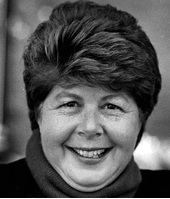
Marjorie Perloff é uma das mais importantes e originais críticas de poesia contemporânea. Sua obra se dedica principalmente a discutir, defender e elucidar a poesia experimental e vanguardista. Ao fazê-lo, ela nos convida a retomar a intuição wittgensteiniana de que imaginar uma linguagem – que é parte do que os poetas experimentais pretendem fazer – é imaginar uma forma de vida. Perloff é especialmente ligada ao Brasil, em virtude da importância que atribui à nossa poesia concreta. Nascida em 1931, Perloff é pesquisadora na Universidade da Califórnia do Sul.
Marjorie Perloff is one of the most important and original critics of contemporary poetry. Her work is mainly dedicated to discuss, defend and elucidate experimental and avant-garde poetry, as well as showing its relationship to the modernist and post-modernist visual arts. In doing so, she invites us to resume the Wittgensteinian insight that imagining a language – which is imagining a form of life. Among other things, Perloff has called international attention to the Language Poetry movement, to the Objectivist Poets and, of course, to Brazilian concrete poetry. Born in 1931, Perloff is professor emerita of English at Stanford University and currently Scholar-in-Residence at the University of Southern California.
Marjorie Perloff is Sadie D. Patek Professor Emerita of Humanities at Stanford University and currently Florence Scott Professor Emerita at the University of Southern California. She teaches courses and writes on twentieth—and now twenty-first—century poetry and poetics, both Anglo-American and from a Comparatist perspective, as well as on intermedia and the visual arts. Her first three books dealt with individual poets—Yeats, Robert Lowell, and Frank O’Hara; she then published The Poetics of Indeterminacy: Rimbaud to Cage (1981), a book that has gone through a number of editions, and led to her extensive exploration of avant-garde art movements in The Futurist Moment: Avant-Garde, Avant-Guerre, and the Language of Rupture (1986, new edition, 1994), and subsequent books (13 in all), the most recent of which is Differentials: Poetry, Poetics, Pedagogy (2005). Radical Artifice: Writing Poetry in the Age of Media (1992) has been used in classrooms studying the “new” digital poetics, and 21st Century Modernism (Blackwell 2002) is a manifesto of Modernist Survival. Wittgenstein’s Ladder brought philosophy into the mix; it has recently been translated into Portuguese (Sao Paulo), Spanish (Mexico), and Slovenian and will be translated in France for 2010 publication. Perloff has recently published her cultural memoir The Vienna Paradox (2004), which has been widely discussed. The Sound of Poetry / The Poetry of Sound, co-edited with Craig Dworkin was published by Chicago in 2009, and UNORIGINAL GENIUS: Poetry by Other Means in the Twenty-First Century, has just been published by U of Chicago Press, 2010.
Marjorie Perloff has been a frequent reviewer for periodicals from TLS and The Washington Post to all the major scholarly journals, and she has lectured at most major universities in the U.S. and at European, Asian, and Latin American universities and festivals. She was recently the Weidenfeld Professor of European Literature at Oxford University. Perloff has held Guggenheim, NEH, and Huntington fellowships, served on the Advisory Board of the Stanford Humanities Center, and has recently completed her year as President of the Modern Language Association. She is a member of the American Academy of Arts and Sciences and recently was named Honorary Foreign Professor at the Beijing Modern Languages University. She received an Honorary Degree, Doctor of Letters, from Bard College in May 2008.
For further information, see Website, http:// marjorieperloff.com
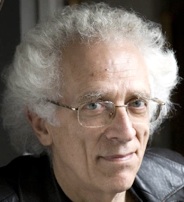
Nascido na Bulgária, Todorov é um dos mais destacados intelectuais em atividade na França. Estudioso de semiologia, ele aplicou o método estruturalista à literatura e à crítica literária. Desde então, publicou vária obras de análise cultural e história das ideias. Recentemente, Todorov publicou A literatura em perigo (Difel, 2007), obra que provocou polêmica nos círculos acadêmicos, ao criticar a tendência dos estudos literários contemporâneos de encarar os textos como meros pretextos para o exercício da análise estrutural. Ao proceder assim, a literatura, segundo ele, perde o seu sentido mais importante, que é o de nos fazer repensar, de modo mais rico e profundo, tanto o mundo em que vivemos quanto a nós mesmos. Todorov, nascido em 1939, escreve livros e ensaios.
Tzevetan Todorov first distinguished himself by applying structuralist methods to literature and literary criticism. Since then, he has published several works in cultural analysis and the history of ideas, including an important call for a reappraisal of the Enlightenment. He recently published La littérature en danger, in which he criticizes the tendency of contemporary literary studies of considering texts as mere pretexts for structural analysis. In doing so, literature loses, according to him, the faculty of spurring us into fresher, richer and deeper ways of thinking about the world and ourselves. Born in 1939 in Bulgaria, Todorov is today one of the most prominent French scholars.
Né en 1939 à Sofia, en Bulgarie, Tzvetan Todorov habite en France depuis 1963. Sa carrière professionnelle s’est déroulée au CNRS (1968-2005), où il est aujourd’hui Directeur de recherche honoraire. Historien et essayiste, il est l’auteur d’une trentaine d’ouvrages, répartis autour de plusieurs centres d’intérêts : les études littéraires (Introduction à la littérature fantastique, 1970 ; La littérature en péril, 2007), l’histoire des idées (Théories du symbole, 1977 ; Nous et les autres, 1989 ; Le jardin imparfait, 1998 ; Eloge de l’individu, 2000 ; Les aventuriers de l’absolu, 2006), la rencontre des cultures (La conquête de l’Amérique, 1984 ; La peur des barbares, 2008), le totalitarisme (Le siècle des totalitarismes, 2010, reprise en un volume de quatre ouvrages précédents). Il a publié également une autobiographie intellectuelle (Devoirs et délices, 2002) et un ensemble d’essais provenant des années 1983-2008 (La signature humaine, 2009). En 2008, son œuvre a été couronnée par le prestigieux prix du Prince des Asturies.
TRADUCTIONS EN PORTUGAIS:
1. As Estruturas Narrativas, Sao Paulo, Perspectiva, 1969.
2. Estruturalismo e Poetica, Sao Paulo, Cultrix, 1970.
3. Dicionario das ciencias da linguagem, Lisboa, Don Quixote, 1973 ; Sao Paulo, Perspectiva, 1977.
4. Introduçâo à literatura fantàstica, Sao Paulo, Perspectiva, 1975 ; Lisboa, Moraes, 1977.
5. Literatura e significaçao, Lisboa, Assirio & Alvim, 1976.
6. Poetica da prosa, Lisboa, Ediçoes 70, 1979 ; Sao Paulo, Martin Fontes, 2003.
7. Os generos do discurso, Sao Paulo, Martin Fontes, 1980 ; Lisboa, Ediçoes 70, 1981.
8. Teorias do simbolo, Lisboa, Ediçoes 70, 1981 ; Campinas, Papirus, 1996.
9. Simbolismo e interpretaçao, Lisboa, Ediçoes 70, 1981.
10. A gramatica do Decameron, Sao Paulo, Perspectiva, 1982.
11. A conquista da America, A questao do outro, Sao Paulo, Martin Fontes, 1984.
12. As morais da historia, Lisboa, Europa-America Publicacoes, 1992.
13. Nos e los Outros, Rio de Janeiro, Jorge Zahar, 1993.
14. Em face do extremo, Campinas, Papirus, 1996.
15. Uma Tragédia francesa, Rio de Janeiro, Record, 1997.
16. A vida em comum, Campinas, Papirus, 1996.
17. O homen dezentrazaido, Rio de Janeiro, Record, 1999.
18. Memoria do mal, tentaçao do bem, Sao Paulo, Arx, 2002.
19. O jardim imperfeito, Sao Paulo, Edusp, 2005.
20. A Nova Desordem Mundial, Porto, Asa, 2006.
21. A Literatura em perigo, Rio de Janeiro, Difel, 2009.
22. O medo dos barbaros, Petropolis, Vozes, 2009.
23. A beleza salvara o mundo, Rio de Janeiro, Difel, 2011.

José Miguel Wisnik é músico, livre docente em literatura brasileira pela Universidade de São Paulo e ensaísta. Entre as suas principais publicações estão O som e o sentido – uma outra história das músicas (Companhia das Letras, 1989), Sem Receita – ensaios e canções (PubliFolha, 2004), Livro de Partituras (Gryphus, 2004), Veneno remédio – o futebol e o Brasil (Companhia das Letras, 2008) e Machado maxixe – o caso Pestana (PubliFolha, 2008).
Como intérprete de suas canções, lançou um primeiro CD que leva seu nome como título (1993), depois “São Paulo Rio” (2000) e “Pérolas aos poucos” (2003). Fez música para dança (“Nazareth”, em 1993, “Parabelo”, em parceria com Tom Zé, em 1997 e “Onqotô”, em parceria com Caetano Veloso, em 2005, todas encomendadas pelo Grupo Corpo), cinema (“Terra estrangeira” de Walter Salles Jr. e Daniela Thomas, em 1995, “Janela da alma”, de João Jardim e Walter Carvalho, 2001) e teatro (“As boas”, “Ham-let” e “Mistérios gozozos”, para o Teatro Oficina, além de “Pentesiléias”, de Daniela Thomas, dirigida por Bete Coelho). Nos últimos anos tem desenvolvido o gênero “aula-recital”, em parceria com o violonista e ensaísta Arthur Nestrovski.
Recebeu o Prêmio Jabuti da Câmara Brasileira do Livro em 1978 (como Revelação de Autor) e em 2009 como ensaísta. Recebeu a bolsa da John Simon Guggenheim Foundation (1983-84), o Troféu Noel Rosa como compositor revelação em 1989, o prêmio do Festival de Gramado na categoria música original para curta-metragem (1989), o prêmio da Associação Paulista de Críticos de Arte por suas produções para teatro e dança em 1991, 1993 e 1995, e o prêmio de melhor música do Festival de Cinema do Ceará, pelo documentário longa-metragem “Janela da alma”, em 2001. Em 2009 recebeu a Ordem do Mérito Cultural.
Atuou como conferencista convidado em diversas Universidades do Brasil, da Europa e dos Estados Unidos, e como professor visitante na Universidade da California, em Berkeley.
José Miguel Wisnik is a musician, an essayist and a Professor of Brazilian Literature at the University of São Paulo. Some of his main published works are O som e o sentido – uma outra história das músicas (Companhia das Letras, 1989), Sem Receita – ensaios e canções (PubliFolha, 2004), Livro de Partituras (Gryphus, 2004), Veneno remédio – o futebol e o Brasil (Companhia das Letras, 2008) e Machado maxixe – o caso Pestana (PubliFolha, 2008).
As an interpreter of his own songs, his first album, released in 1993, has his name for a title. Following that, he released “São Paulo Rio” (2000) and “Pérolas aos poucos” (2003). Complying with requests by the ballet company Grupo Corpo, he composed music for dance (“Nazareth”, in 1993; “Parabelo”, having Tom Zé as a partner, in 1997; and “Onqotô”, in partnership with Caetano Veloso, em 2005)
He also composed for the cinema (“Terra estrangeira” by Walter Salles Jr. and Daniela Thomas, in 1995, “Janela da alma”, by João Jardim and Walter Carvalho, 2001), as well as for the theatre (“As boas”, “Ham-let” and “Mistérios gozozos”, for the theatre group Teatro Oficina, as well as “Pentesiléias”, by Daniela Thomas, directed by Bete Coelho). In recent years he has developed the genre “aula-recital” (“recital-lesson”), having as a partner violin-player Arthur Nestrovski.
In 1978 he received the Prêmio Jabuti from the Câmara Brasileira do Livro (Brazilian Book Chamber) as best revelation author, and again in 2009, as an essayist. He was awarded the John Simon Guggenheim Foundation scholarship (1983-84), the National Noel Rosa Trophy as a revelation composer (1989), the Festival de Gramado Prize for original music for a short film (1989), the Associação Paulista de Críticos de Arte (São Paulo Association of Art Critics) award for theatre e dance productions in 1991, 1993 and 1995, and the best music prize in the Cinema Festival of Ceará, for the full-length film documentary “Janela da alma”, in 2001. In 2009 he received the Ordem do Mérito Cultural (Cultural Merit Insignia).
He has been active as a lecturer in serveral universities in Brazil, in Europa and in the United States, and as Visiting Professor at the University of California, Berkeley.
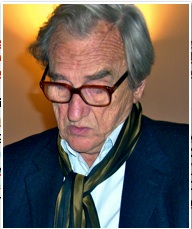
Michel Deguy, born in Paris in 1930, is a French poet and philosopher. The ability to bring together poetic practice and theoretical reflection turned Michel Deguy into a major figure on the French intellectual scene since the 1970s. Michel Deguy is currently a professor of French literature at the Universite de Paris VII (Saint-Denis), the founder and editor-in-chief of Po&sie since 1972 (Editions Belin), and the editor of Les Temps Modernes, the journal founded by Jean-Paul Sartre. He is the former president of the Collège international de philosophie and of the Maison des écrivains.
Michel Deguy a fondé la revue Po&sie en 1977, et la dirige. Universitaire, philosophe de formation, il préside le Conseil d’administration du Collège international de philosophie depuis 2005, après avoir présidé l’Assemblée des Directeurs de programme (1990-1993).
Outre plusieurs centaines d’articles en revues, Michel Deguy a publié une quarantaine d’ouvrages, chez Gallimard, au Seuil, chez Galilée, chez Stock et chez Hermann. On trouve trois anthologies des poèmes dans la collection Poésie/Gallimard. Une bibliographie complète jusqu’en 2000 est éditée par l’IMEC (collection Inventaires, 2002).
Les titres récents sont : La Raison poétique (2000), Spleen de Paris (2000), Au jugé (2004), Sans retour (2004), Desolatio (2007), Réouverture après travaux (2007) : tous ouvrages parus chez Galilée. Le Sens de la visite a paru chez Stock (2005). L’Allégresse pensive (Belin, 2007) rassemble les travaux de la décade qui lui a été consacrée à Cerisy ; on peut ajouter Le Grand Cahier Michel Deguy (330 pages, Le Bleu du ciel, 2007) recueille inédits et études ; La Fin dans le monde (232 pages, Hermann, 2009) ; L’Etat de la désunion (40 pages, Galaade, 2010).
Deux ouvrages ont récemment été consacrés à Michel Deguy : L’étude Différence et Identité – Michel Deguy, situation d’un poète lyrique à l’apogée du capitalisme culturel de Martin Rueff (460 pages, Hermann, 2009) ; l’hommage collectif Le grand Huit (252 pages, Le Bleu du ciel, 2010).
Michel Deguy est traduit dans de nombreuses langues ; on peut trouver en brésilien Reabertura apos obras (traduction Marcos Siscar et Paula Gledanel, 343 pages, Editora Unicamp, 2010).
EM DESENVOLVIMENTO:
ARTE

Hal Foster é um dos mais importantes críticos e historiadores da arte norte-americanos. Em suas influentes obras sobre o pós-modernismo, ele o considera como um movimento de neo-vanguarda, porquanto tentava ultrapassar as formas e disciplinas convencionais. Desde os anos 1990, porém, o pós-modernismo se tornou, segundo ele, mera rotina. Foster defende a necessidade de se manter a tensão entre o caráter social da arte e a sua autonomia: ainda que esta não passe de uma semi-autonomia. Recentemente, ele tem assumido uma posição crítica em relação à arte contemporânea, questionando sua pretensão a se tomar como impérvia a determinações históricas, definições conceituais ou juízos críticos. Nascido em 1955, Hal Foster é, entre outras coisas, Professor de Arte e Arqueologia na Universidade de Princeton e um dos editores da revista October.
Hal Foster is one of the most important North American art critics and art historians. In his influential works on postmodernism, he considered it as a neo-avant-garde movement, in as far as it attempted to reach out beyond given forms and disciplines. Since the 1990’s, however, it has, according to him, become no more than routine. Foster argues that the tension between social embeddedness of art and artistic autonomy – even if it is always only semi-autonomy – should persist. He has recently assumed a critical stance regarding contemporary art, questioning its pretence of floating free of historical determination, conceptual definition and critical judgment. Born in 1955, Hal Foster is, among other things, Professor of Art and Archaeology at Princeton University and one of the editors of October.
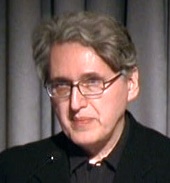
Tendo nascido na Alemanha Oriental e vivido grande parte da vida na União Soviética, Boris Groys subverte os lugares comuns sobre a arte contemporânea e, em particular a arte de vanguarda. Seus ensaios expõem o caráter simplório e moralista das concepções vigentes das relações entre a arte e as instituições, a arte e o mercado, a arte e a política. As teses por ele defendidas são sempre inteligentemente provocantes. Por exemplo, contra o senso comum que opõe a experimentação da primeira vanguarda soviética ao realismo socialista promovido por Stalin, Groys sustenta que este pode se considerado como a culminação das experiências daquela. Groys é também curador e artista, tendo produzido obras de video art que incorporam sua voz e textos seus. Aliás, segundo ele, “a crítica de arte há muito já se tornou uma forma de arte”. Nascido em 1947, Groys é professor de estética, história da arte e teoria da mídia no Centro de Arte e Mídia de Karlsruhe.
Born in East Germany and having lived for most of his life in the USSR, art critic Boris Groys challenges common places about both avant-garde and contemporary art. His essays expose the simplistic and moralistic assumptions of contemporary conceptions of art. His view are often intelligently provocative. For example, against the common sense view that sees a contradiction between the first soviet avant-garde, on the one hand, and Stalinist socialist realism, on the other, he holds that the latter can be taken as the culmination of the former’s experiments. Groys is also a curator and a video artist. In fact, according to him, art criticism has long become an art form. Born in 1947, Boris Groys is Professor of Aesthetics, History of Art and Media Theory in the Karlsruhe Center for Art and Media.

O historiador, teórico e crítico belga Thierry de Duve dedica-se principalmente a uma apreciação reinterpretativa do legado do modernismo. A partir de Duchamp, segundo ele, o clássico “isto é belo”, do juízo estético, foi substituído por “isto é arte”. Assim, ele questiona a distinção entre a arte moderna, a pós-moderna e a contemporânea. Recentemente, De Duve afirmou que a o liberalismo contemporâneo do “tudo é permitido” exacerbou as idiossincracias artísticas, mas não favoreceu o aparecimento das singularidades que se esperam das verdadeiras obras de arte. Thierry de Duve é atualmente Professor de História da Arte e de Estética na Universidade de Lille III
Belgian historian, theorist and critic Belgian Thierry de Duve has made important contributions to the reassessment of the modernist legacy. In this connection, he investigates the consequences of the fact that, since Duchamp, the classic form of aesthetic judgment, i.e., "this is beautiful", has been replaced by "this is art". De Duve’s investigations have led him to dispute the substantiality of the distinction between modern, post-modern and contemporary art. He recently claimed that although the liberalism of “anything is allowed” has exacerbated artistic idiosyncrasies, it has not favored the appearance of the singularities that one should expect from true works of art. Thierry de Duve is currently Professor of Art History and Aesthetics at the University of Lille III.
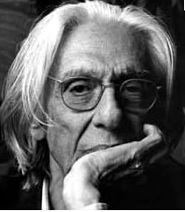
No final da década de 1950 e no começo da de 1960, o poeta Ferreira Gullar se revelou um dos mais fecundos e originais teóricos da vanguarda brasileira nas artes plásticas, ao lançar o seu “Manifesto neoconcreto” e ao publicar a sua “Teoria do não-objeto”. É inestimável a sua importância para os então jovens artistas Hélio Oiticica, Lygia Clark e Lygia Pape, por exemplo. Ainda no começo da década de 1960, Gullar abandonou a vanguarda, filiou-se ao Partido Comunista Brasileiro e passou a defender uma arte politicamente engajada. Em 1993, causou polêmica com o livro “Argumentação contra a morte da arte”, em que atacava as vanguardas contemporâneas. Nascido em 1930, Ferreira Gullar é escritor.
In the late 1950’s and early 1960’s, poet Ferreira Gullar proved one of the most prolific and original theorists of the Brazilian avant-garde in the plastic arts, launching his Manifesto Neoconcreto” and publishing his “Theory of the Non-Object”. The importance of his thought to the then young artists Hélio Oiticica, Lygia Clark and Lygia Pape, for instance, was invaluable. In the 1960’s, Gullar abandoned the avant-garde, joined the Communist Party and proceeded to write politically engaged poetry and drama. This commitment lasted until, in 1975, while exiled by the Brazilian dictatorship, he wrote the “Poema sujo” (“Dirty poem”), which marked the beginning of a new phase in his poetry. In 1993, he again caused controversy with his book The Case Against the Death of Art, in which he attacked the contemporary soi-disante avant-garde. Born in 1930, Ferreira Gullar is an poet and essayist.
FILOSOFIA
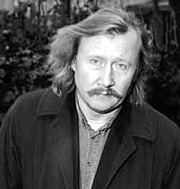
O alemão Peter Sloterdijk é certamente um dos filósofos mais polêmicos do nosso tempo. Rejeitando a realidade dos dualismos tradicionais de corpo e alma, sujeito e objeto, cultura e natureza etc., ele afirma o caráter híbrido do mundo real. Sua inteligência anti-linear tem o privilégio de fazer grandes e inesperadas conexões, repassando num só fôlego Diógenes e Hitler, Stalin e Dada, a República de Weimar e o Grande Inquisidor, Kafka e Brecht, o Zen-Budismo e o Eurotaísmo. Sloterdijk, nascido em 1947, é professor de filosofia e teoria da mídia na Universidade de Arte e Design de Karlsruhe.
German philosopher Peter Sloterdijk is certainly one of the most original contemporary thinkers. Rejecting the reality of the traditional dualisms of body and soul, subject and object, culture and nature, etc., he asserts the hybrid character of the real world. His anti-linear intelligence has been able to discover impressive and surprising connections among, for instance, Diogenes and Hitler, Stalin and Dada, the Weimar Republic and the Grand Inquisitor, Kafka and Brecht, Zen Buddhism and Eurotaoism. Peter Sloterdijk, born in 1947, is Professor of Philosophy and Media Theory at the University of Art and Design in Karlsruhe.
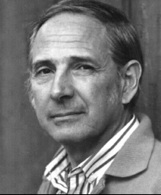
Os escritos do filósofo norte-americano John Searle são imensamente influentes nos campos da filosofia da mente, da filosofia da linguagem e da filosofia da sociedade. Seu pensamento é claro, conciso, direto e controverso. Ele tem fama de ser um extraordinário palestrante. Sua polêmica com o filósofo francês Jacques Derrida é uma das mais famosas do final do século XX. Ultimamente, seus escritos têm posto seriamente em questão a moda intelectual do relativismo. Searle, nascido em 1932, é professor de filosofia na Universidade da Califórnia, em Berkeley.
The works of American philosopher John Searle are hugely influential in the domains of philosophy of mind, philosophy of language and philosophy of society. His thinking is clear, concise, direct and original. He has a reputation as an extraordinary lecturer. His controversy with the French philosopher Jacques Derrida is one of the most famous of the late twentieth century. Lately, his writings have seriously impugned the contemporary intellectual fashion of relativism. John Searle, born in 1932, is Professor of Philosophy at the University of California, Berkeley.